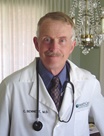Drug Studies Don't Lie, But They Do Fool People part 1
 By Cleaves M. Bennett, M.D.
By Cleaves M. Bennett, M.D.
If you are like most Americans, you've had your blood pressure checked every time you see a doctor, probably when you sought employment, gave blood to the Red Cross, etc. Measuring blood pressure is the in thing to do these days because we all know it is a serious and very common medical problem.
High blood pressure increases the risk of having heart attacks and/or strokes over the next 5 to 10 to 20 years or more after the diagnosis. These problems may seem pretty remote when you first learn about them from your doctor. Your doctor is very likely going to give you a prescription or two to treat the problem.
Bringing the pressure back down with prescription drugs decreases these risks and probably in some instances it's a worthwhile undertaking. But there's a much better option.
First of all, the prescription drug approach is not nearly as good as it's made out to be. Secondly, there's another approach that's far more effective. Let me explain.
Notice that I said that the drugs decrease the risk. It's important to realize we're not talking about a cure here. Moreover, your risk of heart attack or stroke untreated isn't 100%, and the risk, even with effective drug treatment is not 0%. It's not even close. Let me give you an example.
Suppose we work in new drug development for a drug company and we've been told to design a study of a new anti-hypertensive drug. Of course the study must be double-blinded, placebo controlled (i.e. neither the patients nor the doctors know who is getting the active drug or the placebo until the study is completed).
Our boss tells us to pick patients who are all at high risk for cardio-vascular disease, the higher the better. The reason? The placebo treated group should have a lot of disease "events", i.e. heart attacks, strokes, admissions to the hospital, deaths, etc. in order to show how good the new drug is in preventing these problems.
Let's suppose this drug company enrolled 10,000 patients in their 50's and 60's with hypertension. Half of them received the new drug and half a placebo. The study ran the 5 years and now all the results are in and calculated.
Untreated ( taking placebo ) rate of heart attack over the five years was 17%! Now that's actually very high for people with hypertension in that age range. The drug company executives are very pleased with the study design and, in particular, the choice of patients.
Treated rate of heart attack over the five years was brought down to 9%! That would be considered a very good response.
The report in The American Journal of Medicine would read: "Treatment with this new drug caused a 47% fall (17% → 9%) in risk of heart attack over 5 years." That would make the evening news, and the drug company's stock price would likely rise a good bit. A near 50% beneficial effect is a home run in the drug industry.
Now this was a made up study, but you can find those kinds of results in medical journals every single month. Usually not nearly that good though. As I said, 47% reduction in risk is a home run.
I'm going to tell you something now that few doctors and fewer still patients know about drug studies and how they should be interpreted.
If only 17 out of 100 patients taking the placebo had a heart attack, that means that the other 83 patients would not have benefited at all, even had they been taking active medication. So 83% of patients were not going to get heart problems during those 5 years no matter what they did. And since 9 out of 100 patients taking active medication had a heart attack anyway, those 9 certainly weren't benefited either.
So, add it up: 9 + 83 = 92 patients that did not benefit and only 8 out of 100 were actually benefited by taking this new drug over a five year period. Cost and side effects for the 92%, but no measurable benefit.
Bottom line: the drug caused a 47% reduction in risk of, but only an 8% fall in the rate of heart attacks. Do you see the difference? Risk is all theory, a heart attack may or may not happen to you. Rate is real. Rate is: call an ambulance.
It's a very important difference, especially if you're one of those poor individuals taking a bunch of pills every day. And all because your doctor said, and all the TV ads say these pills are really, really great and they will really help you out a lot. Maybe even save your life. You're at risk for a heart attack or stroke so you've got to take the pills and get those numbers under control.
Drug Studies Don't Lie, But They Do Fool People part 2
Cleaves M. Bennett MD obtained his MD from the University of Rochester (New York) with honors in 1960. He was Clinical Professor of Medicine in the Division of Nephrology at Harbor/UCLA Medical Center, from 1969 until retiring in 2006.
He is the author of several books including In 12 weeks You Can Control Your High Blood Pressure Without Drugs.






